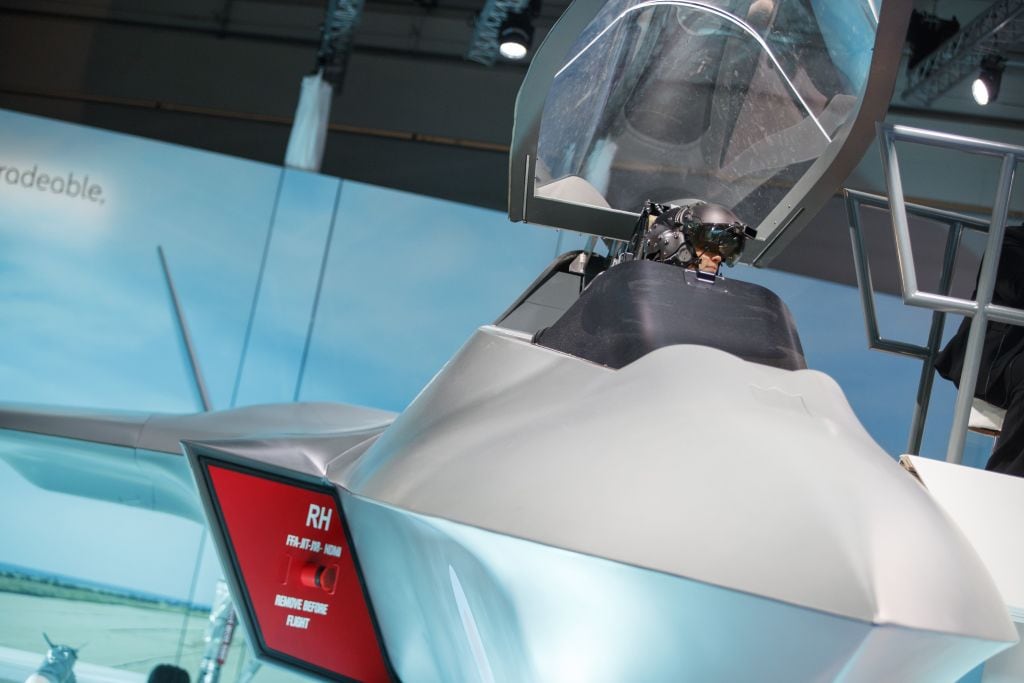MUNICH – German Chancellor Angela Merkel connected the fortunes of Europe's defense ambitions to the push for a common policy on arms exports.
Speaking at the Munich Security Summit here on Feb. 16, she argued a joint position on weapons sales is a prerequisite for the idea of a “European army” and the cooperative development of weapons to equip such a force.
“If we don’t have a common culture of arms exports in Europe, then the development of joint weapon systems is in jeopardy,” Merkel said.
The problem of diverging tacks on weapons sales is on display in a Franco-German project to build a next-generation warplane, known as the Future Combat Air System. French companies, used to being courted by their government as a formidable economic engine, bristle at the idea of Germany vetoing a transfer of the aircraft to countries that Berlin deems problematic.
RELATED

Merkel’s comments in Munich further elevate a thorny policy difference between Germany and France to a priority item in her administration’s defense agenda for Europe. The recently signed Treaty of Aachen also made mention of the issue, with both countries vowing to find a “common approach” to exports of cooperative weaponry.
Transferring weapons to countries with spotty human-rights records is a hotly contested issue in Germany. “We have a lot of complicated discussions ahead of us,” Merkel predicted.
The chancellor’s comments come as a report in Der Spiegel on Friday said the two countries already had struck a secret deal in mid-January in which Germany would largely grant France free reign in exports to non-NATO countries. Government officials declined to comment on the pact.
Sebastian Sprenger is associate editor for Europe at Defense News, reporting on the state of the defense market in the region, and on U.S.-Europe cooperation and multi-national investments in defense and global security. Previously he served as managing editor for Defense News. He is based in Cologne, Germany.








